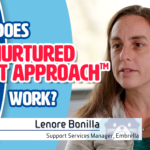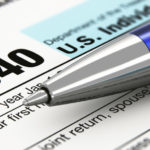5 years ago, Hurricane Sandy made landfall and changed the lives of thousands of New Jersey residents. This year, Hurricane Harvey decimated Houston and now, Hurricane Irma is making its way north. If Irma hits New Jersey, will you be prepared?
Disaster Preparedness for Foster Parents
In response to Sandy, our Training Department developed the Disaster Preparedness series. Housing, food and safety are all standard concerns in the face of a hurricane, but for foster parents, there can be even more complications. Traveling out of state, for instance, to comply with an evacuation order or keeping in touch with your child’s caseworker all present unique challenges for foster parents despite the already daunting task of weathering a hurricane.
To help prepare you for the storm, we’re providing 5 hurricane tips developed straight from our course, “Disaster Preparedness Part 1: Preparing Your Family Before an Emergency.”
Know the Terms
A hurricane watch indicates a possible hurricane, but a hurricane warning means the hurricane is expected. If you hear there’s a hurricane warning, the storm is due to hit very soon, within a day or so.
Be Prepared
Follow the New Jersey Office of Emergency Management on Facebook and Twitter to stay abreast of updates regarding upcoming storms, states of emergency or evacuation plans. Furthermore, if it’s offered in your locality, make sure to register with your local emergency management office so that they can help to ensure your safety.
Discuss Your Plan
You should always have a disaster preparedness plan for what to do when a disaster strikes. Make sure your whole family is informed, and make sure you discuss it thoroughly with the caseworkers of the children in your care. The Federal Emergency Management Agency (FEMA) provides a Family Emergency Plan sheet where you can track important details for each family member in the event you get separated or need to find one another before a hurricane hits.
Have a Kit
A true disaster preparedness emergency supply kit is more than just a few extra batteries and some first aid stuff. A proper kit will help you care for your entire family for an extended duration. These kits need to be robust because a disaster can limit your ability to meet even the most basic needs. FEMA recommends that you have an emergency supply kit with enough supplies for three days. You can find their emergency kit checklist here.
Take the Training
Disaster preparedness is imperative when there’s a coming storm. Make sure to explore our entire Disaster Preparedness series, available to New Jersey resource parents online or as a home correspondence course.
To access out trainings online, visit embrella.org.
To sign up for the home correspondence course, visit our Home Correspondence Course page here.


